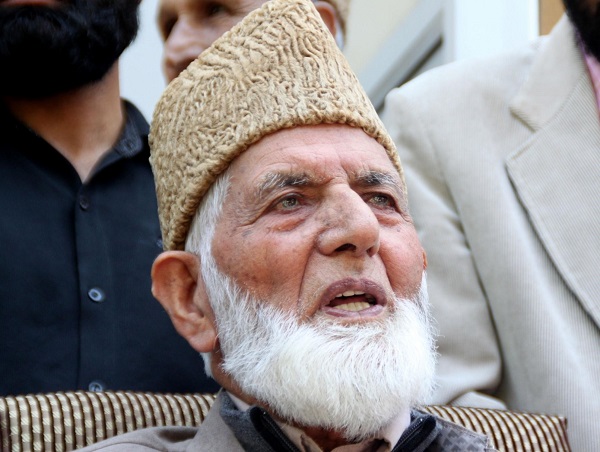Srinagar, (Asian independent) On the first death anniversary of Kashmiri separatist leader and former President of All Party Hurriyat Conference (APHC), Syed Ali Shah Geelani, the situation in Jammu and Kashmir remained normal with no untoward incident getting reported from anywhere in the Valley.
Geelani passed away on September 1, 2021 after prolonged illness at the age of 92. To keep the situation under control, the J&K administration had tightened the security immediately after Geelani’s death, including snapping mobile internet services.
Daily life in the Valley was normal on his first anniversary on Thursday. All the educational and government institutions remained open, while the markets also saw the usual rush.
Public transport also ran normally and no untoward incident was reported from anywhere. Heavy deployment of police personnel was seen in Srinagar as a precautionary measure.
Geelani’s death was the second major setback for the separatists in Kashmir after August 5, 2019, when the special status of the erstwhile state of Jammu and Kashmir was removed.
During his long political career, Geelani was a member of the Legislative Assembly of Jammu and Kashmir from the Jamaat-e-Islami and the Muslim United Front, but after the outbreak of the anti-India insurgency in 1989, he renounced electoral politics and played a central role as a separatist leader.
Before his death, the authorities had kept him under house arrest for 13 years. He was detained in 2010 during Omar Abdullah’s regime as the CM, after he led a mass protest in Kashmir against the killing of four Kashmiri youth in an alleged fake encounter.
In 2015, during the tenure of Mufti Muhammad Saeed, Geelani was allowed to leave the house for a few weeks. But after raising anti-India slogans at a public meeting, he was again detained until his death.
Geelani started his political career with Jamaat-e-Islami, which is currently banned. He separated from the party in 2003 and formed his own outfit named Tehreek Hurriyat, whose members were mostly affiliated to Jamaat-e-Islami.
Geelani broke away from the Hurriyat Conference in response to the People’s Conference fielding a veiled candidate in the 2002 Assembly elections and later became the head of one of its factions.








